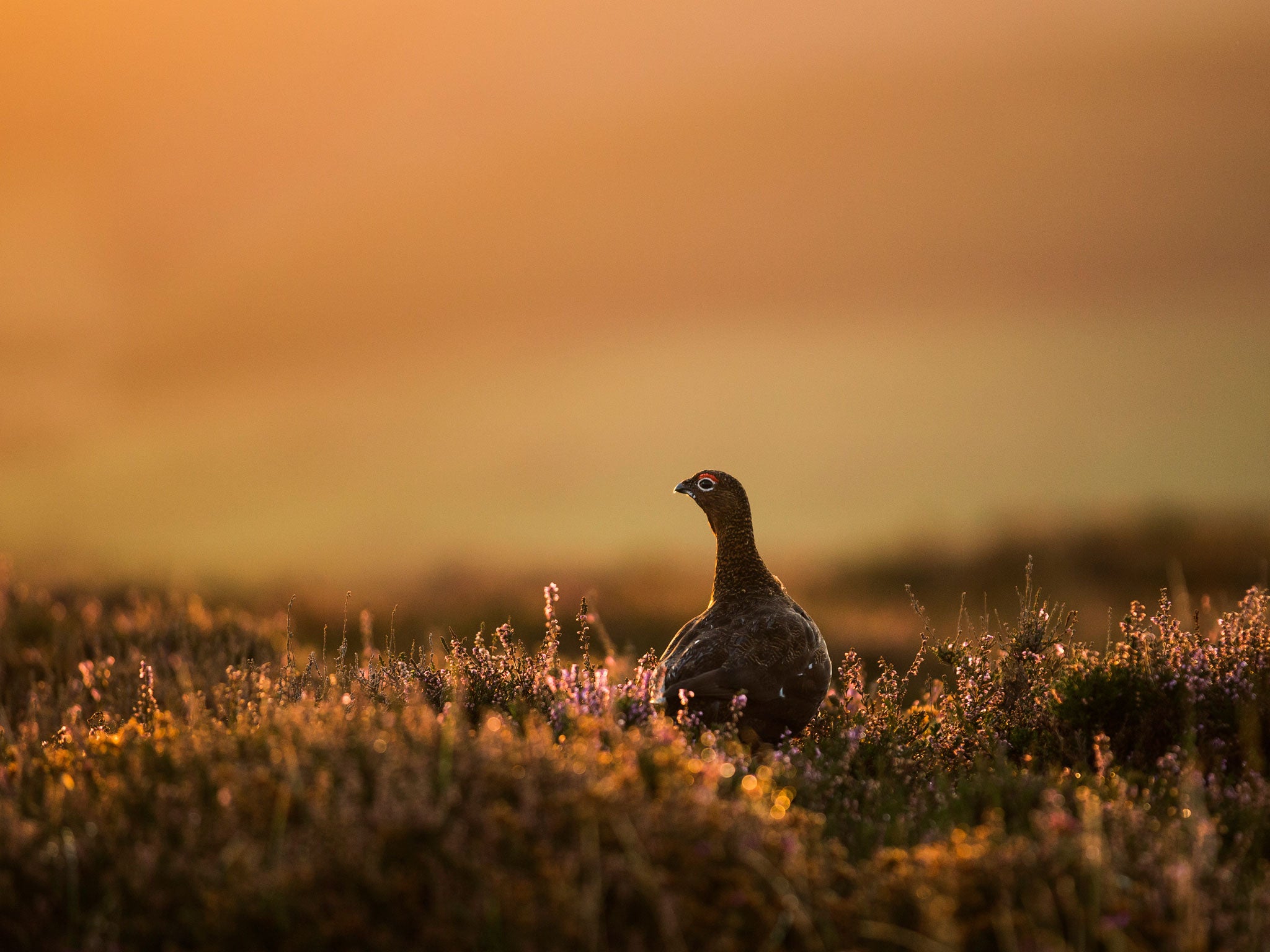Inglorious: Conflict in the Uplands by Mark Avery, book review: The grouse-shooting season as exposed as not so glorious
Avery has campaigned to expose the truth about this country pursuit

Where will you be on the 12th of August? On holiday? At work? Or will you be one of the few thousand people – equivalent to two thirds of an Old Trafford crowd – for whom "The Glorious Twelfth" is the start of the grouse-shooting season?
If the latter, you may be heading for the uplands of the North of England and Scotland to shooting estates, many of which have remained the property of the same few aristocratic families for centuries. There, you spend a very expensive day hunkered down in a shooting "butt" – a sort of hide – while a line of beaters drive the birds towards you and your companions in order that you can blast them from the sky.
This year the grouse-shooting season will begin in rather a different climate than it did in 2014. This is in no small part due to the efforts of Mark Avery and others who have campaigned to expose the truth about this traditional country pursuit.
Firstly, its much-vaunted economic benefit to the rural economy evaporates in the face of the true costs he reveals. The boggy upland moors, a valuable carbon sink and sponge for heavy rainfall, are drained and burned to improve conditions for the growth of Ling heather, which provides food and shelter for red grouse. The bogs release carbon as they dry out, impacting on climate change and increasing the risk of flooding in the lowlands, while the peaty run-off leads to higher bills through the costs associated with water purification.
Secondly, vast numbers of stoats, foxes, badgers and other grouse predators are killed to maintain the artificially high numbers required to make shooting profitable.
In Scotland, the noble and iconic mountain hare is being systematically driven towards extinction because it sometimes carries a tick harmful to grouse chicks. Goshawks, golden eagles and buzzards are routinely poisoned, trapped and shot by balaclava-clad hooligans. Rather than custodians of the countryside, Avery portrays those managing Britain's grouse moors as a moneyed elite, asset-stripping the uplands and being subsidised at our expense through the tax system to do so. It turns out red grouse are not even the "healthy, wild" food source they are promoted as when they find their way into our supermarkets. Instead they are so high in lead content they would be illegal if subjected to the same checks as any other meat.
Every effective campaign needs its totem: Avery and his fellow campaigners have chosen the hen harrier, a lovely, shy bird of prey that shares a natural habitat with the red grouse, setting up a day of events in its honour on 12 August each year. There are between 550 and 750 breeding pairs remaining in Britain, but tellingly only four of those nest in England, where wildlife crime on the grouse moors means birds routinely "disappear".
Avery is a reasonable man; by his own admission "a wishy-washy liberal" who has engaged in fruitless years of dialogue with the grouse-shooting industry in his efforts to gain concessions. Once roused, however, he proves indefatigable. So far the political connections and powerful lobbying of the industry has maintained the status quo, but public opinion seems to have shifted.
It could be that the Glorious Twelfth will soon be thought of as Hen Harrier Day rather than as a celebration of the ritualised slaughter of an inoffensive moorland bird.
Join our commenting forum
Join thought-provoking conversations, follow other Independent readers and see their replies
Comments